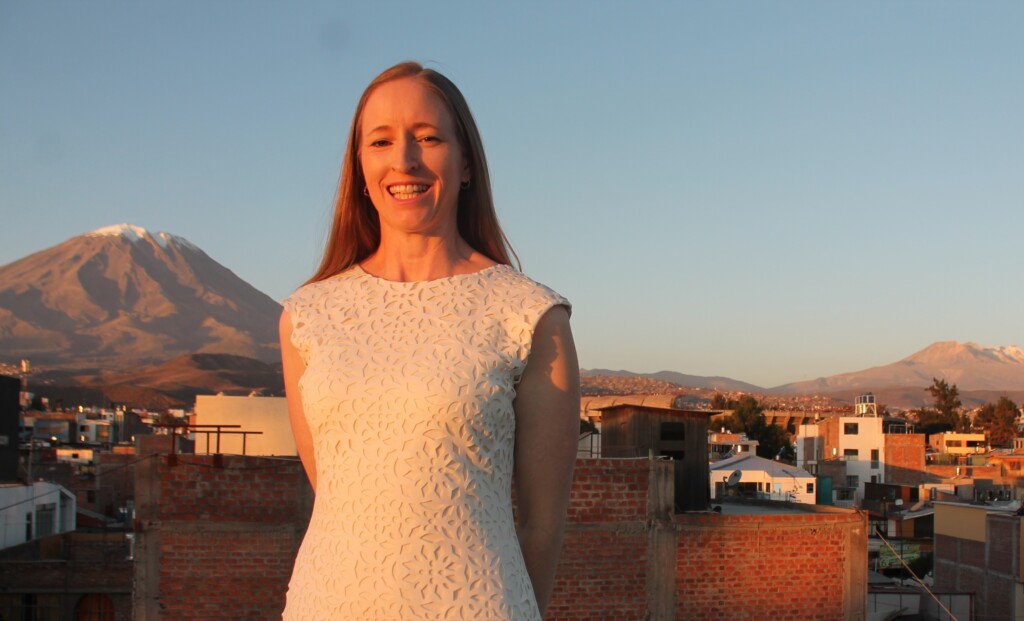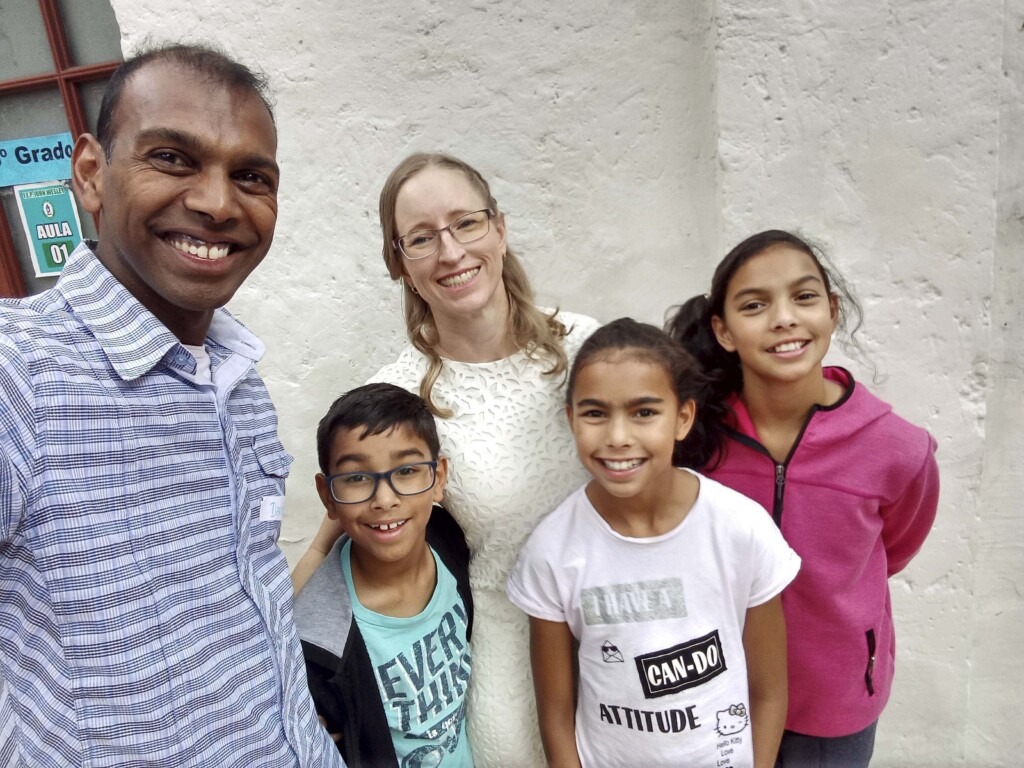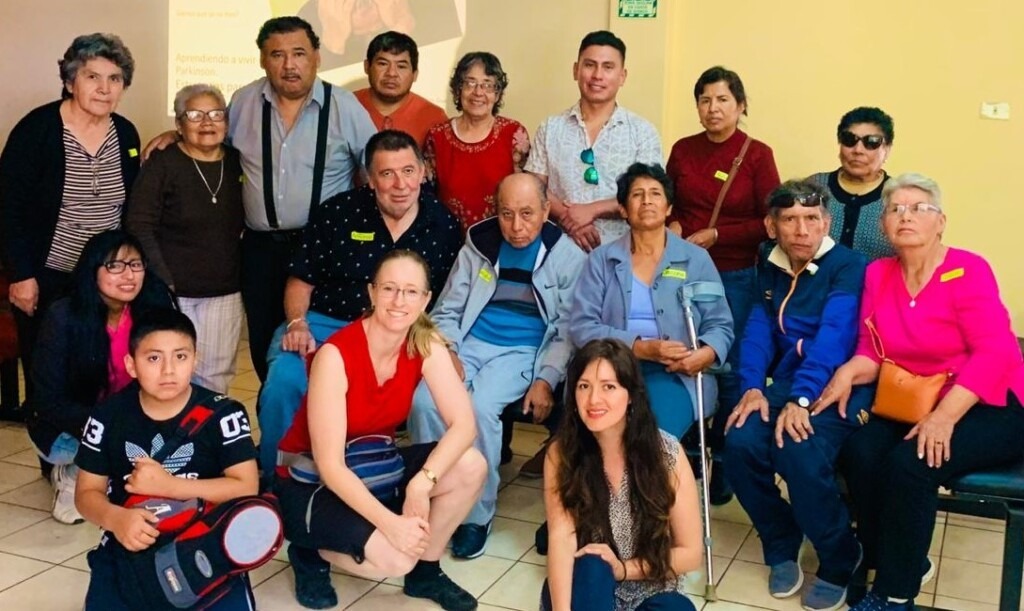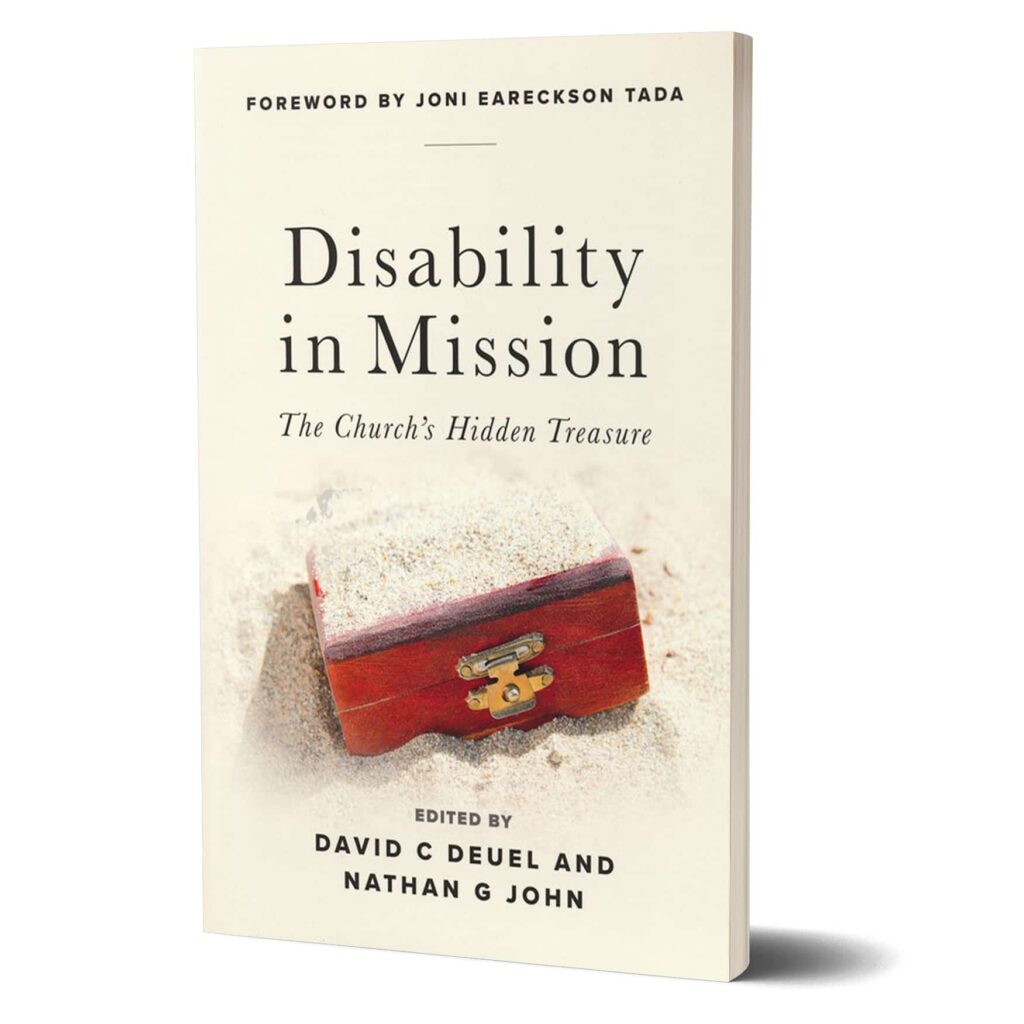Unexpected Opportunities to Declare God’s Glory Through Parkinson’s Disease

“Let me help you take your garbage out,” my new neighbor said and grabbed the bags before I could stop her and tell her my drugs weren’t working.
I tried to follow her with the remaining bags, but my legs would not move. My whole body swayed strangely as I attempted to put one foot in front of the other. She was back at my side before I could even get halfway to the big bin down the block. I had to confess why I couldn’t walk properly.
I explained how in 2014 when I was just 37, I was diagnosed with Parkinson’s disease, a disease normally reserved for older folks. It started with a slight tremble and weak fingers but soon affected my walking, balance, and range of movement. After four years, I couldn’t raise my arms above my head, and I was struggling to walk.
Parkinson’s Disease is a chronic progressive neurodegenerative movement disorder affecting dopamine production within the brain.
This affects “motor, cognitive, and emotional domains” (Hirsch, 2011). In other words, Parkinson’s Disease literally slowly robs one’s ability to walk, talk, and smile (Clarke, 2019). Medication can provide artificial dopamine to mask the symptoms. However, side effects increase, and the drugs reduce in their effectiveness with time.
Sometimes, they wear off, or they just don’t work. It is hard to keep it a secret. As people see me walking strangely or see me trembling, they stare, ask questions, and make comments, which can be unscientific and insensitive. You feel vulnerable. Vulnerability has affected different aspects of my life, whether I am at church in Peru or in my home country or whether I’m doing outreach in the international community.
Vulnerability may be uncomfortable, but God has been using my vulnerability for his purposes.

Nonetheless, my family and I knew we needed God’s help to manage this degenerative disease, so we asked supporters to pray for us. After a few years, we returned to our sending country to share in churches about the work we were doing in Peru. I chose to address the elephant in the room and talked openly about my diagnosis. I shared how I hoped God could use my disease, but I had no idea how and was yearning to be like Paul who celebrated his weakness so that God’s power could rest on him (2 Corinthians 11-12).
As I said, “I don’t know the details, but I’m going to trust God has a plan in all of this.”
It was certainly not the normal missionary report. People committed to pray for us.
We knew it wasn’t going to be easy, but we felt led to return to Peru. As I became more open with the church in Peru, we started to see the lack of good teachings about suffering and disability.
My disability did not mean a lack of faith, but one lady said to me, “You need to pray more and have more faith.” In response, I told her, “I totally agree I need to pray more, but we should stop there.”
This response made people feel guilty and inadequate, especially in how to interact with people like me. Still, this awkwardness gave an opening to talk about suffering. I shared how Paul was not healed in the Bible, yet his suffering allowed him to learn the secret of contentment (Philippians 4:11-12). Opportunities arose to converse, lead studies, and preach about suffering. I explained how not everyone is healed and how it is not an equation. Good people ≠ (does not equal) good health. Likewise, praying hard/being super spiritual ≠ good health or the worst: Disability ≠ You did something/sinned to deserve this.
These are common misconceptions in the West but more so in Peru. The Bible offers many varied reasons why one might suffer, but my favorite response to suffering comes from Paul.
Through his weakness, Paul learned to “not rely on ourselves but on God” (2 Corinthians 1:9) and to “comfort those in any trouble with the comfort we ourselves receive from God” (2 Corinthians 1:4).
Such thoughts led me to begin a new ministry for people with Parkinson’s – for those who often hide away at home as it is often seen as a curse or punishment from God.
As I became more open about my diagnosis, one contact pulled me aside and told me that her husband had Parkinson’s Disease. We’d not met Juan – as he was embarrassed to go out – but we met, and I explained to him that I wanted to start a support group for people with Parkinson’s. With the help of a local doctor and some volunteers, we started a meeting in the local hospital.
For each meeting, we would start with a devotion, led by me or by a lovely pastor’s wife with Parkinson’s. We would tell those who attended that God loves them and that their disease isn’t a curse. Each time, we would also listen to their stories, and by this, I mean we really listened to understand them. In Peru, it is quite common to talk about God – as these folks have grown up in a religious culture – but it is a culture without the understanding of the grace of God.
Juan, who I had asked to help me, shared spontaneously about his life with Parkinsons, his struggle with depression, and his thoughts about how we could help others with this debilitating sickness. He said,
“I’ve caught Christine’s contagious vision.”
What a nice surprise. At the next meeting with a visiting neurologist, Juan pretty much took over and led the event. It has been exciting to see Juan’s approach changing, and I pray for his spiritual healing.

A scientifically proven therapy to improve symptoms is exercise (Hirsch, 2011), so I encourage people with Parkinson’s to exercise. Previously, those in the support group had never heard about these benefits – not even professionals in my city have a good education about Parkinson’s disease – but it has been exciting to see how this advice to exercise has been making changes. Recently, a group member named Victor has been making small improvements through the exercises I sent them to do. I’m arranging Parkinson’s training for physiotherapists later this year to help resolve this.
I especially look forward to this training because I personally have experienced the benefits of exercise. In the past, I took up gymnastics to combat my Parkinson’s, and this led me to unexpected opportunities in the International Parkinson’s Community. I had made a video showing how poorly I moved (vulnerability) and my struggle to improve. The video, Handstand for Parkinson’s, was selected as one of the Top 12 Videos submitted to the World Parkinson’s Competition of 2019. I improved my balance, coordination, and range of movement. In fact, I’m stronger now than ever before. The video encouraged and continues to encourage people to exercise.
I can say with assurance: God has brought something good out of such a dreadful diagnosis as Parkinson’s Disease.
I write a blog and have been interviewed for two podcasts. I make educational videos in English and Spanish about Parkinson’s and the importance of exercise. I’m an Ambassador for the World Parkinson’s Congress, and I’m promoting the next congress, as it has helped me a lot. I’ve joined a campaign to end Parkinsons called, PD Avengers. With each opportunity, I am reminded: In my vulnerability, God is my strength, and God can use these opportunities for his glory.
Serving others was the farthest thing from my mind at diagnosis, but I see how God is using me. Community is essential, and I encourage others out there not to wait to involve themselves in serving others. God can use you now, as we are all enabled only by God’s power, and you never know what being so vulnerable with a new neighbor could lead to. Our God is able.
Written By — Christine Jeyachandran
Clark, D. (2019, April 12). Sky TV’s Dave Clark: People think I’m drunk – I have Parkinson’s Disease. Express.co.uk. https://www.express.co.uk/lifestyle/ life/1113589/Sky-TV-Dave-Clark-drunk-Parkinson-s-disease
Hirsch, M. A., Iyer, S. S., Englert, D., & Sanjak, M. (2011). Promoting exercise in Parkinson’s disease through community-based participatory research. Neurodegenerative Disease Management, 1(5), 365–377. https://doi.org/10.2217/nmt.11.44

Disability in Mission
Disability in Mission: The Church’s Hidden Treasure outlines a radical change in approaches to missiology, missions, and praxis for the twenty-first-century global cultural context. It explores a pattern whereby God works powerfully in missions through disability and not in spite of it.


